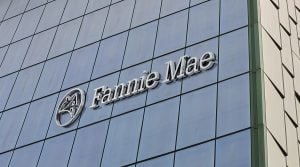By Michelle Jones. Originally published at ValueWalk.

Activities to take Fannie Mae and Freddie Mac out of conservatorship continue, and as more and more information comes out, it’s sounding like the government will have a lot to answer to when the Supreme Court hears the Collins case in December. Odeon Capital hosted a conference call with former Fannie Mae CFO Timothy Howard, and he provided some insight into Fannie Mae’s and Freddie Mac’s activities.
Q2 2020 hedge fund letters, conferences and more
Update on Fannie Mae, Freddie Mac activities
In a report, Dick Bove of Odeon Capital said the solicitor general’s brief in the Collins case is now up for review. The solicitor general argued that the U.S. government had to take control over Fannie and Freddie because they were insolvent. The brief also claimed that the government-sponsored enterprises were in a cycle that would have them paying more and more dividends to the government.
However, Howard provided insight into Fannie Mae’s and Freddie Mac’s activities that reveals just how questionable the government’s claims are. He also shed some light on their financial statements, which he said were done in such a way that made it look like Fannie and Freddie were in financial trouble even though they weren’t.
GSEs were not insolvent
He said the government required the GSEs to record non-cash charges in at least three areas that made them look like they were in trouble. The three areas suggested that their deferred tax assets were eliminated, their loan loss reserves were increased, and that fair value accounting resulted in the creation of additional charges.
Howard’s explanation showed how accountants can use “creative decision making to achieve whatever they might want in a given period,” Bove said. He also described Howard’s comments as “devastating” because they reinforced his view that Fannie’s and Freddie’s financial statements can’t be trusted. He noted that ultimately, the accountants’ “questionable practices” had to be unwound, but that was years later. He noted that the GSEs weren’t insolvent or in danger of failing.
He also said that despite the government’s claims that the GSEs would have to pay more and more dividends, in reality, they didn’t have to pay the dividends on those senior preferred shares in cash. Thus, that meant there was no cycle of increasing debt and requirements for higher and higher dividends, like the government claimed.
Fannie Mae activities: false claims by the government
Bove noted that on previous conference calls, a lawyer for the plaintiffs in the Collins case explained why the government’s legal claims were questionable. Howard’s comments indicated why the government’s economic claims were not only questionable but were actually “factually incorrect.”
For this reason, Bove expects the plaintiffs to win the Collins case before the Supreme Court. If that happens, the value of the junior preferred shares should rise to a slight discount from par, which is $25.
“One can never predict with certainty what a court will do,” Bove said. “However, the information being developed in our calls is particularly damming, suggesting a basis for confidence by holders of the junior preferreds.”
Capital rule back in focus for Fannie Mae activities
Howard also weighed in on the capital rule that was proposed for Fannie Mae and Freddie Mac. The Federal Housing Finance Agency received widespread criticism for the rule because it would require the GSEs to hold a combined $240 billion, capitalizing them like banks even though they aren’t banks.
The Financial Stability Oversight Council was the one voice that came out in support of the rule as it was written, but Howard believes the rule was inappropriate. He again called Fannie’s and Freddie’s accounting into question.
He questioned why assets owned by third parties are on the books of the GSEs as if they are owned by them. He also questioned why guaranteed fees are shown as interest income and why the fees that have been collected are shown as being amortized. Further, he questioned why the GSEs’ income statements indicate no profit for shareholders when the balance sheet claims there was.
Analysis of the capital rule
In his analysis of the proposed capital rule, Howard explained the competitive positions of Fannie and Freddie. He said the rules that have been suggested have no relation to the companies’ true assets or the losses they have sustained over the last 30 years. Further, he argued that under these capital rules, Fannie and Freddie wouldn’t be able to compete and would lose market share.
Fannie Mae and Freddie Mac themselves have spoken out against the capital rule as it was proposed. Bove believes the FHFA wants rules put in place that would drive them out of business. He noted that the GSEs have provided documents arguing that the new rule would be harmful.
Thus, it was suggested that the advisors of the companies would likely be in conflict with the FHFA, and Howard believes that could hold up the process of taking Fannie and Freddie out of their conservatorships.
Bove said he believes there can’t be a public stock offering until the involved parties adopt the same set of assumptions about what will work in the markets and what does not. Thus, he does not recommend the common shares of Fannie and Freddie, although he continues to recommend the preferred shares.
It should be noted that in another recent report, Bove said the FSOC’s support of the capital rule as it was proposed was good for the GSEs because it could fast-track their release from conservatorship.
The post Questionable accounting activities at Fannie Mae, Freddie Mac appeared first on ValueWalk.
Sign up for ValueWalk’s free newsletter here.



